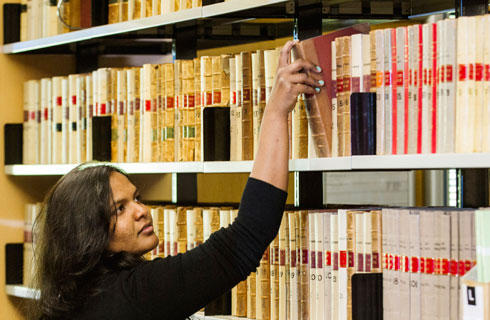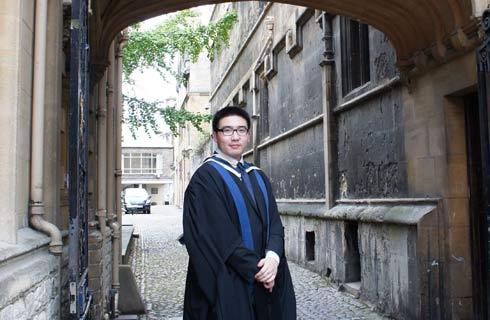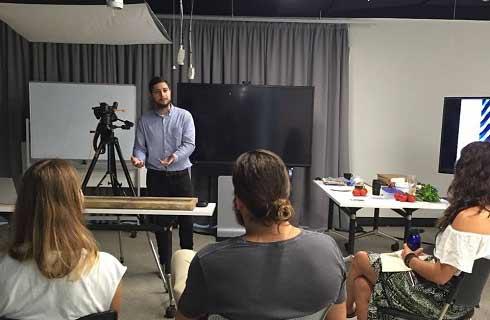嵌入式系统工程理学硕士(英文)
MSc (Eng) Embedded Systems Engineering

学历文凭
Masters Degree (Taught)

专业院系
School of Electronic and Electrical Engineering

开学时间

课程时长

课程学费

国际学生入学条件
IDP—雅思考试联合主办方

雅思考试总分
6.5
- 雅思总分:6.5
- 托福网考总分:88
- 托福笔试总分:160
- 其他语言考试:PTE - 64 overall and no less than 60 in any component.
CRICOS代码:
申请截止日期: 请与IDP联系 以获取详细信息。
课程简介
The huge growth of processing power, now available in small power-efficient packages, has fuelled the digital revolution, which has touched all sectors of the economy. Embedded systems are everywhere – and the demand for specialists in this field is only going to continue to grow. Our Embedded Systems Engineering MSc course centres around practical work in the area of electronics design and applications alongside applications-led modules which will give you a strong digital technology backup. You may study applications as diverse as medical electronics and e-health, and a substantial element of practical work will give you confidence with software and digital hardware implementations using microcontrollers, FPGA, DSP devices and general system-on-chip methodology. The School of Electronic and Electrical Engineering here at Leeds is an exciting and stimulating environment. It’s home to specialist teaching facilities and a wealth of leading researchers working on real-world issues and contributing to global change. This means you'll be learning the most up-to-date practices, equipping you with the technical skill set and holistic knowledge you’ll need to pursue a career in this field. Why study at Leeds: This Masters degree is accredited by the Institution of Engineering and Technology. Our globally-renowned research conducted right here in on campus feeds directly into the course, shaping your learning with the latest thinking in, for example, the ultrasonic embedded systems research led by Professor Steve Freear, where they are currently developing ultrasound systems for better imaging and cancer treatment. Advance your knowledge and skills in relevant topics like medical electronics and e-health, data communications and network security and FPGA design. Tailor the course to suit your specific interests with a selection of optional modules to choose from, including wireless communications, digital signal processing, control systems design and high-speed internet architecture. Build industry experience and conduct your own individual project which focuses on a real-world topic of your choice, giving you the chance to make your own contribution to science and develop professional skills in research and critical thinking. Access specialist and research-grade facilities including high-quality test and measurement equipment. Experience expert theoretical and practical teaching delivered by a programme team made up of researchers and academics who specialise in areas such as digital signal processing and efficient embedded systems design. Enjoy small groups that are used to support the teaching, giving you access to regular feedback and help with solving problems you may have with a particular topic directly from the academic staff. Enhance your career prospects and become part of our successful alumni who have secured jobs in organisations such as BT and Jacobs. Make the most of your time at Leeds by joining our student society ShockSoc where you can meet more of your peers, attend high-quality technical visits, enjoy social events and get the chance to put theory into practice by participating in our own Robot Fighting League (RFL). Watch our RFL video to find out more. Enhance Your Academic and Subject-Specific LanguageAs part of your course, you will have access to the Professional and Academic Communication module that provides valuable insights into studying a postgraduate degree in the UK while helping you develop your academic and subject-specific vocabulary. Through a combination of in-person workshops and independent online study, you will explore the use of technology—such as translation tools and generative AI—to support effective communication. You will also build the language and literacy skills necessary to become a more confident and capable communicator throughout your studies.
相关申请
 预科
预科 奖学金
奖学金 实习机会
实习机会 在校学习
在校学习 跨境学习
跨境学习 校园授课-线上开始
校园授课-线上开始 在线/远程学习
在线/远程学习
开学时间&学费
学费信息仅供参考,请与IDP联系以获取详细信息
| 开学时间 | 时长 | 学费 | 地点 |
|---|
学校排名

世界排名153
数据源:
泰晤士高等教育世界大学排名
关于利兹大学

利兹大学在《2025 完整大学指南》中名列英国大学前25名,在2025 QS世界大学排名中名列世界前100名。它也是罗素大学集团大学之一,这是英国著名的顶尖研究密集型大学名单。该大学的学生满意度很高,在英国排名第三(2018年《泰晤士报高等教育学生体验调查》)。作为同一项调查的一部分,该大学的校园设施在英国排名第二,这是对学生发挥潜力的绝佳校园的认可。近年来,两栋新建筑投资超过1.2亿英镑。体育设施也被认为是世界级的。The Edge是一个为学生提供的令人难以置信的健身中心,包括一个25米的室内游泳池、攀岩墙和为不同体育活动设置的各种大厅。这是一所热情友好的大学,拥有充满活力、多样化的学生群体。事实上,来自世界130多个不同国家的13800多名国际学生在利兹大学学习。学生会是这个国家最活跃、最活跃的工会之一。学生可以加入300多个俱乐部和社团,利兹大学联盟(LUU)是英国第一个被全国学生联合会评为''优秀''的俱乐部和社团。
本校相关课程

生物多样性与保护
学历文凭
Masters Degree (Taught)
开学日期
课程费用总额


统计博士学位
学历文凭
Ph.D.
开学日期
课程费用总额


纯粹数学博士学位
学历文凭
Ph.D.
开学日期
课程费用总额


应用数学博士学位
学历文凭
Ph.D.
开学日期
课程费用总额


PhD in Geography
学历文凭
Ph.D.
开学日期
课程费用总额


PhD in Microwave and Millimetre Wave Engineering
学历文凭
Ph.D.
开学日期
课程费用总额

其他相关课程

工程四级证书
 希拉巴克斯特培训中心(私立)
希拉巴克斯特培训中心(私立)学历文凭
Certificate IV
开学日期
课程费用总额


工程四级证书-制造
 霍姆斯格兰职业技术学院
霍姆斯格兰职业技术学院学历文凭
Certificate IV
开学日期
课程费用总额


设计文凭(UniLink)(8个月)
 斯威本科技大学
斯威本科技大学泰晤士高等教育世界大学排名:282
学历文凭
Unilink Diploma
开学日期
课程费用总额


专业工程学硕士(生物医学)
 悉尼大学
悉尼大学泰晤士高等教育世界大学排名:54
学历文凭
Masters Degree (Coursework)
开学日期
课程费用总额


工程科学学士
 伊迪斯科文大学
伊迪斯科文大学学历文凭
Bachelor Degree
开学日期
课程费用总额


细木工三级证书
 霍姆斯格兰职业技术学院
霍姆斯格兰职业技术学院学历文凭
Certificate III
开学日期
课程费用总额










 英国
英国